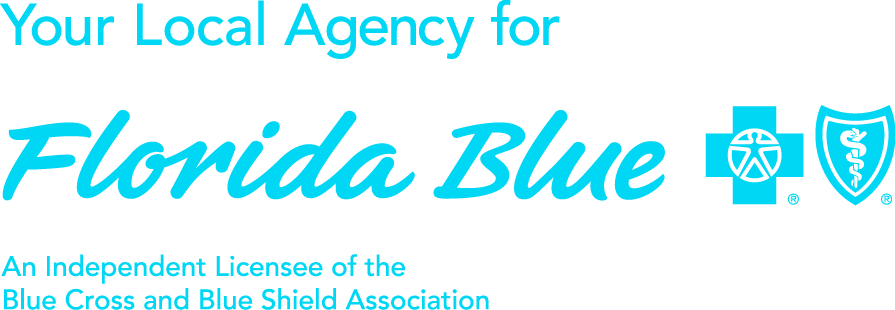What are the requirements for Medicare in Florida?

WHO IS IT FOR?
Typically senior products are designed to benefit those people who are 65 and older. Many of these people are at or near retirement age and their needs for health insurance and life insurance change drastically. Most experts recommend using the services of a licensed insurance agent when seniors are faced with these new challenges.
WHAT IS IT?
Typically, senior products are medicare supplement or MA plans that help seniors pay for those expenses not covered under Medicare and final expense life insurance plans that help cover burial costs.
WHY SHOULD I BUY IT?
Many seniors are on a fixed income after retirement and they need extra help in covering out-of-pocket expenses associated with uncovered medical bills. They also want the peace of mind that their children will not be burdened with bearing the costs of their burial at the time of their death.
ARE YOU TURNING 65 SOON? IF SO, YOU WILL BE ELIGIBLE TO ENROLL IN MEDICARE.
Plan ahead and review your options with Elliot Glass. Call 954-637-3750 to make sure you're covered with the right Medicare Advantage or supplemental plan at the right price.
ARE YOU OVER 65 AND WANT TO CHANGE YOUR MEDICARE OPTIONS?
From October 15 to December 7, you have the opportunity to make changes to your Medicare Advantage or Medicare prescription drug coverage.
HOW DO MEDICARE ADVANTAGE PLANS WORK?
Medicare Advantage Plans, sometimes called "Part C" or "MA Plans," get your Medicare Part A (Hospital Insurance) and Medicare Part B (Medical Insurance) coverage from the Medicare Advantage Plan and not Original Medicare.
WHAT'S MEDICARE SUPPLEMENT INSURANCE (MEDIGAP)?
A Medicare Supplement Insurance (Medigap) policy, helps pay some of the health care costs that Original Medicare doesn't cover, like co-payments, coinsurance, and deductibles.
Some Medigap policies also offer coverage for services that Original Medicare doesn't cover, like medical care when you travel outside the U.S. If you have Original Medicare and you buy a Medigap policy, Medicare will pay its share of the Medicare-approved amount for covered health care costs. Then your Medigap policy pays its share.
A Medigap policy is different from a Medicare Advantage Plan. Those plans are ways to get Medicare benefits, while a Medigap policy only supplements your Original Medicare benefits.
VIEW THE MEDICARE BASICS GUIDE WATCH THIS VIDEO
STILL HAVE QUESTIONS?
Medicare
For specific information about Medicare, including eligibility and coverage, visit http://www.medicare.gov or call 800-Medicare (800-633-4227). TTY users call 877-486-2048.
- General Medicare information:
- Part A is hospitalization coverage free to most eligible Medicare beneficiaries.
- Part B is medical coverage that requires a monthly premium (taken from your Social Security check or paid by personal check).
- Part C (Medicare Advantage Plan) is a type of Medicare health plan that contracts with Medicare to provide you with all your Part A and Part B benefits and often includes prescription drug coverage. You must be enrolled in Medicare Part B and you may also be required to send a monthly premium to the insurance company.
- Part D is prescription drug coverage that may require a monthly premium (taken from your Social Security check or paid by personal check).
- Medicare Supplement (Medigap) Plans sold by private companies can help pay some of the health care costs Medicare doesn't cover, like co-payments, coinsurance, and deductibles. Some Medigap policies also offer coverage for services that Medicare doesn't cover.
- You may purchase Part B, Part C, Part D or Medigap plans on the private market. If you choose to do so, you should cancel your state group health insurance plan. Remember, once you cancel, you cannot enroll at a later time.
- You are eligible for Medicare (either at retirement or after retiring) and keeping a State Group Insurance health plan:
- Coordinating medical coverage:When Medicare Part A or Part B pays, your State Group Insurance health plan pays secondary. When Medicare does not pay, your state group health insurance pays primary for covered benefits and services (just like when you were an employee). Florida Blue administers the nationwide PPO secondary plan; Aetna, AvMed, and UnitedHealthcare administer the HMO secondary plans in their respective service areas.
- If you fail to enroll in Medicare Part B: You will have significant out?of?pocket expenses for Part B eligible services because you will be required to pay the portion (approximately 80 percent) that Medicare would have paid. If you choose to continue your state group health insurance coverage once you’re eligible for Medicare, elect your Medicare Part B coverage. Although Medicare does not require you to purchase Part B, it is in your financial interest to do so. This coverage provision also applies to Medicare-eligible dependents on your plan.
- Creditable Coverage for Medicare Part D: For prescription drug coverage, your state group health insurance pays primary for most prescription drugs. Covered medications, copays and the network remain the same as when you were an employee. If you are enrolled in the state group secondary health insurance, do not enroll in a separate Medicare Part D plan. The state’s prescription drug coverage is as good as or better than Medicare Part D and is currently approved by Medicare as creditable coverage.
- Medicare (Retiree) Advantage Plan: Capital Health Plan offers this plan to state retirees in their respective HMO service areas. To become a member, you must be enrolled in Medicare Parts A and B, complete the HMO’s application and receive approval before your retiree health coverage becomes effective. Medicare Advantage Plans do not allow retroactive enrollment and claims can only be paid if you are approved for the plan. Medical and prescription drug coverage are included.
- Medicare Advantage and Prescription Drug (MA-PD) Plans: Capital Health Plan and Humana offer an MA-PD HMO plan and UnitedHealthcare offers an MA-PD PPO to state retirees and their dependents. To become a member (you and your dependents) must be enrolled in Medicare Parts A and B and you must send a copy of your Medicare card to the People First Service Center. If your Medicare enrollment cannot be verified before the effective date of your MA-PD plan, you will be moved into the State Group Insurance PPO health plan with Florida Blue. Medicare Advantage Plans do not allow retroactive enrollment and claims can only be paid if you are approved for the plan. Medical and prescription drug coverage are included. For more information visit the Medicare Advantage and Prescription Drug page.
- Enrolling in Medicare: Once you are eligible for Medicare Part A and Part B due to age (65) or disability and no longer working, you should contact the Social Security Administration (SSA) about your Medicare benefits. Enrollment in Medicare is time sensitive and you may be subject to substantial financial penalties if you fail to meet federal deadlines. Contact your local SSA office three months before your 65th birthday: call 800?MEDICARE (800?633?4227), or visit www.Medicare.gov for more information. TTY users call 877-486?2048.
- Enrolling in state group Medicare secondary coverage or a Medicare advantage plan: the state offers three Medicare coverage tiers when you or a dependent is Medicare eligible:
- Medicare I: a single policy for you
- Medicare II: a family policy for you and your eligible dependents and at least one is eligible for Medicare. (If enrolling in an MA-PD plan all members covered under your family policy must be enrolled in Medicare.)
- Medicare III: a family policy for you and one dependent and you are both Medicare eligible
- Coordinating medical coverage:When Medicare Part A or Part B pays, your State Group Insurance health plan pays secondary. When Medicare does not pay, your state group health insurance pays primary for covered benefits and services (just like when you were an employee). Florida Blue administers the nationwide PPO secondary plan; Aetna, AvMed, and UnitedHealthcare administer the HMO secondary plans in their respective service areas.
‹ Back





